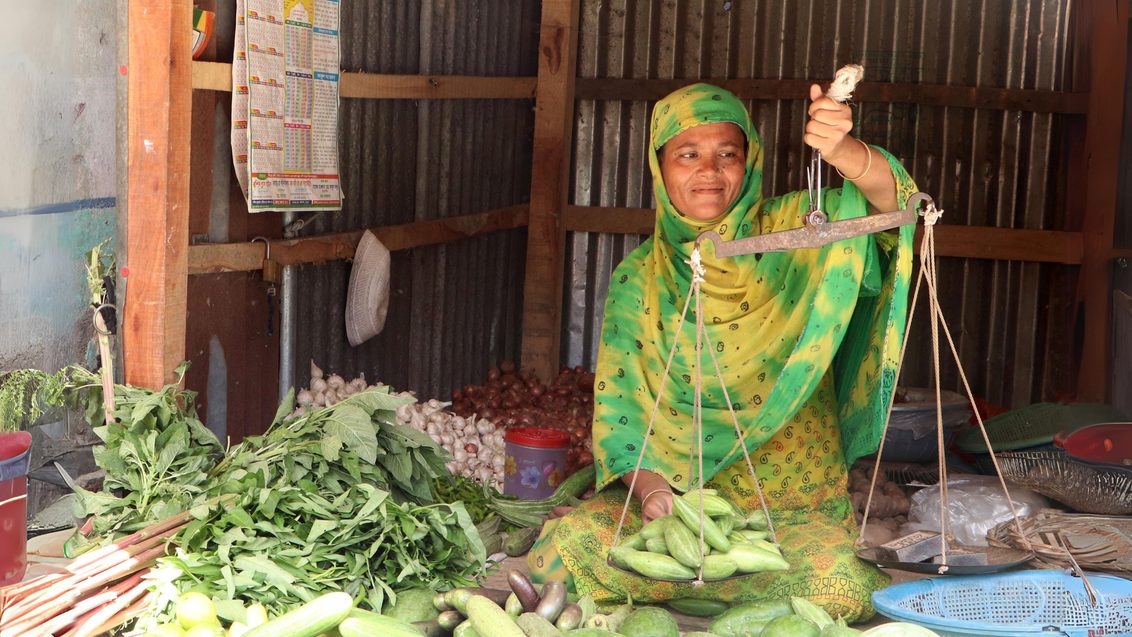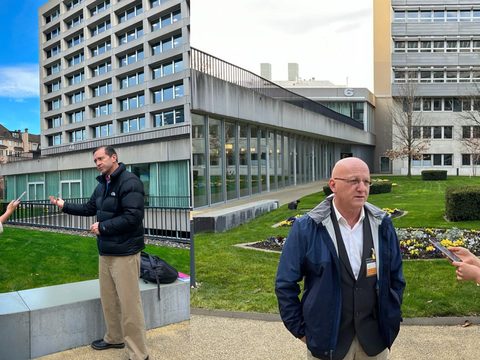Policy can improve what’s on your plate

Bangladesh promotes better nutrition in secondary cities
By Helen Prytherch*
Food system activities have contributed to great gains for humanity. They remain essential for the achievement of the United Nations’ 2030 Agenda. However, the way many food systems function today also creates significant challenges. These include hunger, poor diet quality, inequity, and threats to nature. Most food systems lack the ability to adapt to shocks and stresses and become sustainable. They often reinforce longstanding power imbalances and inequities.
Urban food systems – my focus here – have their own special features. They need to tackle questions of supply and demand to address malnutrition in all its forms. These range from undernutrition (stunting, wasting, underweight), and inadequate vitamin or mineral intake on one side, to overweight, obesity, and resulting diet-related diseases on the other. In more than one-third of low- and middle-income countries, these burdens are continuing to increase. Progress towards the SDG2 “Zero Hunger” targets remains elusive.
Bangladesh, the world’s most densely populated country, is no exception. There are good reasons for seeing the nation as a success story: growth and economic development over the last five decades have been impressive. Bangladesh has made remarkable progress in reducing poverty. However, poor-quality diets and nutrition remain a persistent concern. This is particularly true in ‘secondary’ cities, large urban centers away from the capital. For all its successes, Bangladesh ranks 81st out of the 125 countries in the 2023 Global Hunger Index. More than 11 percent of the population is undernourished, 24 percent of children under five years are stunted, and 11 percent are acutely malnourished or wasted. Poor maternal nutrition remains highly prevalent, especially among adolescent girls. This problem contributes significantly to an inter-generational cycle of malnutrition and poverty.
The Nutrition in Cities Ecosystems (NICE) Project aims to tackle such challenges. Initiated by the Swiss Agency for Development and Cooperation, NICE is jointly realized by the Swiss Tropical and Public Health Institute, ETH Zürich (Sustainable Agroecosystem Group and The World Food System Center), Sight and Life, and the Syngenta Foundation for Sustainable Agriculture. Its objective is to improve nutrition and health, and to reduce poverty by increasing the demand and supply of nutritious foods produced according to agroecological practices. NICE runs in two secondary city eco-systems each in Bangladesh, Kenya, and Rwanda. The Bangladesh cities are Rangpur and Dinajpur.
Policy is a powerful tool for shaping food systems at sub-national level. That is why we made it an important component of the NICE project’s results framework. Local governments can realign incentives in the policy and regulatory environment, and work across the public and private sectors. This enables them to influence the quality and availability of food, while also subsidizing access. For example, they can use local procurement policies to affect the types of food that public institutions buy, provide, and distribute. Multisectoral interventions can protect consumers. They can also increase knowledge about healthy, diverse diets, thus shaping consumer behavior and creating positive longer-term demand.
The Government of Bangladesh has formulated solid policies in various sectors related to food and nutrition security. However, their implementation is frequently limited. The informal food economy is too often excluded, despite its critical contribution to the food security of lower-income citizens. NICE is working with key government officials to build food system capacity, strengthen governance structures, and raise consumer awareness about safe food production.
One major achievement so far has been the introduction of Standing Committees on City Nutrition and Food Systems. Thanks to our fruitful collaboration, both Rangpur City Corporation and Dinajpur Municipality have established such committees. These promote the nutritional well-being and overall health of residents within the city jurisdiction. In parallel, we are actively advocating for the inclusion in Bangladesh’s public procurement system of nutritious foods produced according to good agricultural practices.
These and other government actions – from the local to the national level – can be powerful drivers for Bangladesh’s food system. They can stimulate rapid and widespread change. Through the right mix of policy, regulatory and public investment choices, more people in cities can have better access to nutritious, more diverse diets, and livelihood options. This has knock-on benefits to reduce poverty and improve diet-related health.

